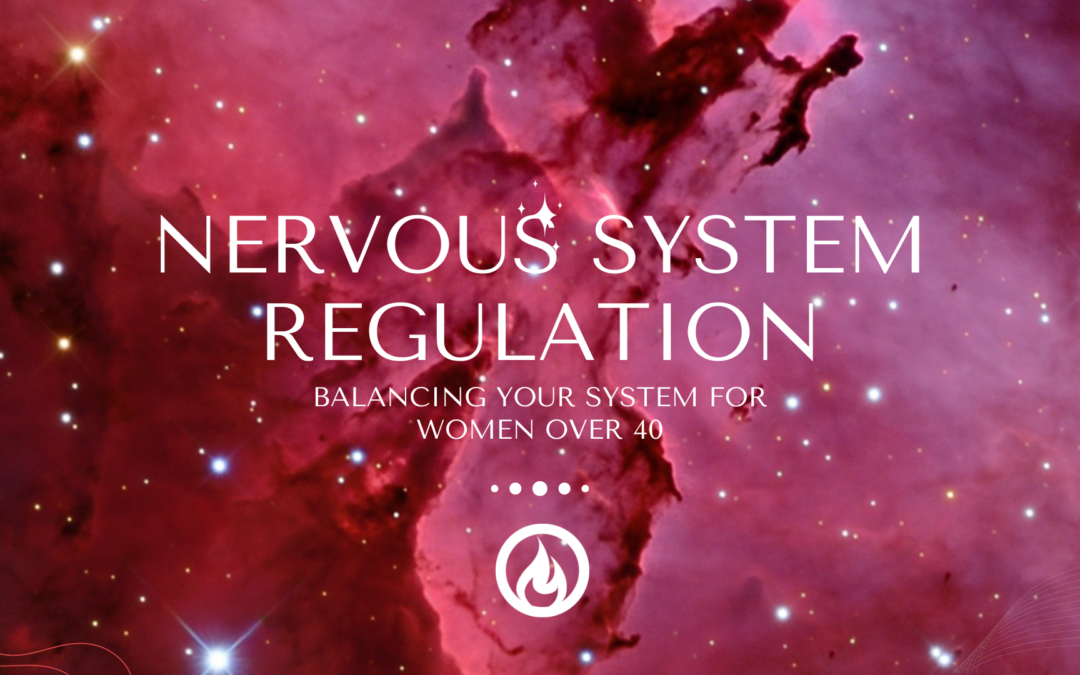Transitions are not easy. Whether you are transitioning careers, locations or the big one, hormonal shifts, change can cause a wave of emotions and often feel like you are on the struggle bus. Today I wanted to talk about the transitional phase in a woman’s life that we all go through. It’s the transitioning into peri-menopause and menopause. This topic comes up frequently with my clients and in the G-Fit Tribe. While it can be marked by diverse symptoms that can disrupt daily routines and cause a sense of unfamiliarity with oneself, it’s something we all face. Symptoms such as stress, weight fluctuations, cognitive fog, and sleep disturbances often stem from hormonal imbalances. However, diving deeper into understanding and regulating the nervous system might hold the key to better health and vitality during this transitional phase.
Let’s talk about the Nervous System…
At the core of our bodily functions lies the nervous system, acting as the orchestrator of various bodily processes, from heart rate regulation to stress management. Menopause-induced hormonal shifts can throw this delicate equilibrium off balance, manifesting in the symptoms commonly encountered by women during this phase. When our bodies are out of balance, it causes hormonal disturbances that causes our bodies to shift into calm, balanced and. happy to survival aka active sympathetic system.
An overly active sympathetic nervous system triggers the release of stress hormones like adrenaline and cortisol. This physiological response leads to shallow, rapid breathing, elevated heart rates, and the redirection of resources such as blood and oxygen to essential survival functions, neglecting non-essential systems like digestion, reproduction, and emotional regulation. While this response historically helped survival by prioritizing immediate threats over other bodily functions, it can heighten the challenges faced during menopause.
The Nervous System and Hormonal balance
Estrogen, a pivotal hormone whose levels decline during menopause, significantly influences nervous system function. This decline can increase stress responses and disrupt sleep patterns, compounding other menopausal symptoms like weight fluctuations and brain fog.
How do we regulate our nervous system?
Thankfully, various strategies can help in regulating the nervous system:
- Mindfulness and Meditation: Engaging in regular mindfulness practices can alleviate stress and enhance the body’s resilience to hormonal fluctuations. Techniques such as deep breathing and guided meditation can greatly help calm the nervous system.
- Exercise: Incorporating physical activity, particularly yoga and aerobic exercises, into your routine helps in nervous system regulation. Beyond enhancing muscle mass and energy levels, exercise improves mood and sleep quality.
- Nutrition: Consuming foods rich in omega-3 fatty acids, magnesium, and B vitamins supports nervous system health. Integrating these nutrients into your diet can assist in stress management and overall well-being. Having a balance of macros and NOT removing a macro also helps bring your body into balance and regulate your nervous system (Hello G-Fit meal plans).
- Sleep Patterns: Prioritizing sleep is essential Establishing a consistent sleep schedule, reducing screen time before bedtime, and creating a calm sleep environment promotes restful sleep.
- Supplementation: Certain supplements like adaptogens, magnesium, and omega-3 fatty acids can help balance your hormones and boost your nervous systems functions.
Let’s talk adapotgens.
Adaptogens are a class of herbs and plants that are believed to help the body adapt to stressors and restore balance. These substances have been used for centuries in traditional medicine systems, particularly in Ayurveda and Traditional Chinese Medicine.
One noteworthy product that aids in nervous system regulation is FLOCUS. Crafted to help facilitate the transition from the “fight or flight” sympathetic state to the “rest and digest” parasympathetic state. By leveraging the body’s natural response to stress (conscious and unconscious) you can help minimize symptoms of hormonal imbalances NATURALLY.
Navigating the peri-menopausal and menopausal years need not be a struggle. By prioritizing the understanding and care of your nervous system, you can significantly influence your health, vitality, and overall quality of life. Remember, consistent, incremental steps can lead to substantial improvements.
I dive DEEP into practices to calm your nervous system and create balance and order within your body in the G-Fit Academy. When your body is out of balance and fighting to survive, the workouts you do and menu you are following doesn’t have the SAME impact. It is from a flow state and an aligned mind AND body where all things start to balance again, your nervous system calms and you are able to navigate life’s transitions with ease.
Learn more about the G-Fit Academy, a course beyond the diets and workouts! A system that will completely change your fitness game and regulate your hormones creating a state of balance and flow in your life. Learn more HERE.



